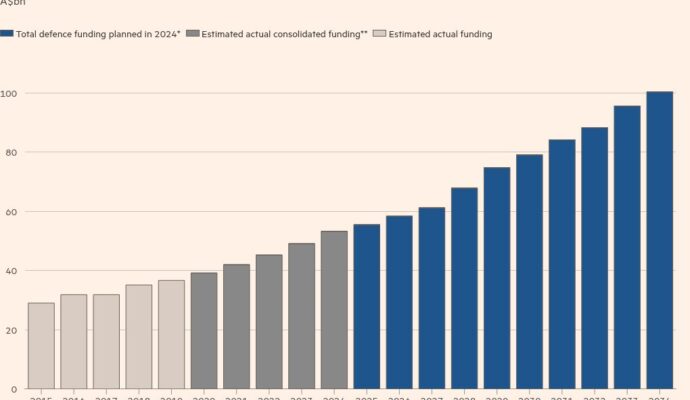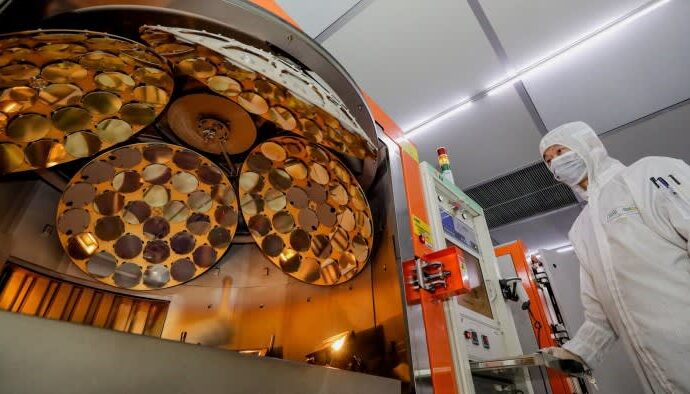Unlock the Editor’s Digest for free
Roula Khalaf, Editor of the FT, selects her favourite stories in this weekly newsletter.
Indian Prime Minister Narendra Modi has vowed to build a “self-reliant India” and announced tax and regulatory reforms to benefit businesspeople and the middle class in his first major speech since the US imposed 50 per cent tariffs on the country.
Modi did not make direct reference to the falling out with the US, but his speech on Friday at Delhi’s Red Fort to mark the country’s 78th anniversary of independence from Britain was heavy on nationalist rhetoric as he pledged to insulate the economy against its reliance on imports ranging from microchips to engines for fighter jets.
“I want to tell our citizens, our youth, and everyone who understands the power of technology, that by the end of this year, ‘Made in India’ semiconductor chips will be available in the market,” said Modi, who was clad in an orange turban and a scarf in the national colours of orange, white and green.
Modi also announced that India would reform its goods and services tax by October, a move that would benefit middle-class taxpayers, a vital constituency for the 74-year-old leader’s ruling Bharatiya Janata party.
US President Donald Trump’s administration hit India with a 25 per cent tariff from July 1, then last week doubled the amount to 50 per cent by adding a “secondary” 25 per cent tariff for its purchases of Russian oil, which Washington argues is helping fuel Moscow’s war in Ukraine.
Ahead of Modi’s speech, officials had privately played down the notion that the prime minister would address the stand-off with the US directly.
Modi made an oblique reference to the impasse that led to a breakdown in trade talks with the US, however, touching on India’s hard line protecting its agricultural markets from US competition.
“Modi will stand like a wall against any policy that threatens their interests. India will never compromise when it comes to protecting the interests of our farmers,” he said.
The rift between India and the US, its largest trading partner, has plunged their expanding strategic partnership into its worst crisis in decades, and has stunned many Indians, rekindling distrust of the US and the west in a country that has a long-standing friendship with Russia.
“The Americans are making it very hard for India with their public pressure campaign,” said C Raja Mohan, a visiting professor at the Institute of South Asian Studies in Singapore. “As the leader of a very large nation, Prime Minister Modi cannot be seen as succumbing to those pressures.”
At the same time, he said, “Modi is telling his system to negotiate with the US in a pragmatic manner and find a solution.”
On Thursday, commerce secretary Sunil Barthwal told reporters that India remained “fully engaged with the US in trade negotiations”.
Atmanirbhar Bharat, or “self-reliant India”, has been a catchphrase for Modi for years as the country seeks to make itself less dependent on imports of manufactured goods such as semiconductors, advanced batteries, fertiliser and energy.
A government “Make in India” push to promote manufacturing has brought some successes, including Apple’s decision to move a chunk of its iPhone supply chain into India, but overall progress has been slow because of what investors and economists say is entrenched red tape.
Modi on Friday announced the creation of a dedicated “task force for next generation reforms” to be charged with cutting compliance costs for companies and entrepreneurs, reducing the scope for arbitrary legal actions, and streamlining laws to improve the ease of doing business.
India Business Briefing
The Indian professional’s must-read on business and policy in the world’s fastest-growing big economy. Sign up for the newsletter here


